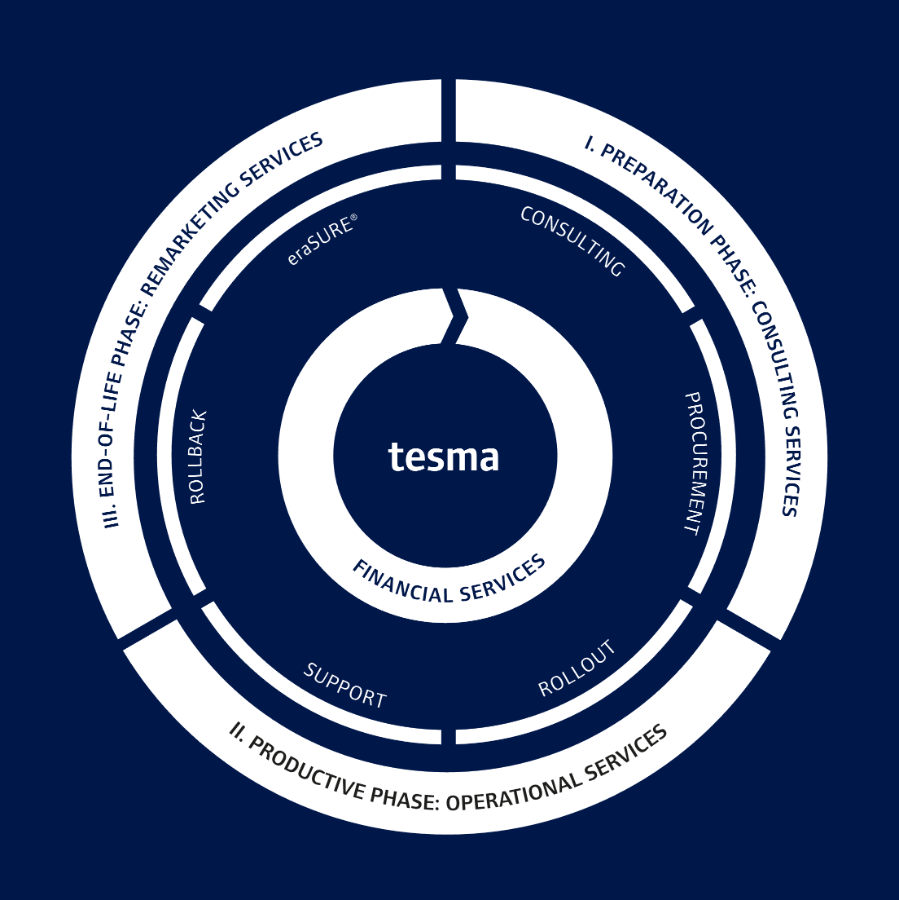 Coca-Cola HBC Austria: Nachhaltigkeit rückt in den Fokus
Coca-Cola HBC Austria: Nachhaltigkeit rückt in den Fokus
The digital workplace has become a key performance factor for companies, which is why they provide their workforce with mobile devices such as laptops, tablets, and smartphones alongside stationary equipment. As technology quickly becomes obsolete, they also regularly replace this hardware, resulting in vast amounts of old equipment that need to be managed. And coronavirus has only exacerbated this situation, as the study ‘The Rising Tide of E-Waste’ by Blancco reveals: Almost all respondents (93 percent) in Germany cited storage and disposal of hardware purchased during the pandemic as an issue. Only 2 percent of respondents plan to continue using laptops in the office that were originally acquired for working from home, while a mere 4 percent plan to recycle them and 1 percent to scrap them – the latter mainly to destroy data. The majority (78 percent) are inclined to store any assets they have purchased for now and use them at some point in the future.

Unused hardware impacts on environmental footprint and costs
Storing assets that are no longer used shortens their useful life, when the aim, from an environmental point of view, should be to maximize their useful life, for example by selling them on. Research by the German Environment Agency has revealed that using a laptop for six rather than three years reduces associated greenhouse gas emissions and lifecycle costs by around 28 percent. In addition, any hardware lying unused in storage is wasted capital and can represent a real drain on finances. In Germany, for example, it costs one in four companies more than €100,000 a year. Storing unused hardware makes neither environmental nor economic sense.
Less is more: minimalism in a digital world
In light of this, it can be worthwhile taking a closer look at the trend for minimalism among consumers, who only own what they actually use. Their focus is on the quality of a product, and they act in line with the principles of the circular economy to increase a product’s useful life. For example, they sell what they no longer need, which often makes it affordable for others in the first place. And instead of buying a car or a smartphone for a lot of money, they simply lease one instead, for as long as they need it. This paves the way for remarketing, avoids waste, conserves resources, reduces clutter, and saves space and costs. Leasing also gives consumers greater flexibility and independence, without having to compromise.
These are benefits that companies can also enjoy when it comes to ICT. The lifecycle model from German technology-management company and financial service provider CHG-MERIDIAN shows how easy it can be.
Lifecycle management is an end-to-end solution
CHG-MERIDIAN’s lifecycle services are based on a belief in the need for sustainability from start to finish with a focus on putting the circular economy into practice. They are usage-based throughout, from as-is analysis to consultancy, and from device provision and financing to refurbishment and remarketing. A comprehensive solution such as this makes it easier and more profitable for companies to take the decisive step.


Carbon-neutral with carbonZER0®
CHG-MERIDIAN offers even more by helping to make hardware carbon-neutral. Customers who take up the carbonZER0® option can have their CO2 emissions calculated using a TÜV-certified process, and then offset the emissions via their lease instalment. The extra cost of making a smartphone carbon-neutral is just a few cents a month. The money is invested in recognized climate change mitigation projects, while certificates provide documentary proof of the emissions saved. This is a huge opportunity for German companies to take a lead on climate action, as research by Bitkom reveals that few companies are measuring their environmental footprint and offsetting their carbon emissions. It also represents another way of acting sustainably, thus boosting employee satisfaction and the company’s image, and making it easier to attract new employees and customers. A win-win situation for businesses.
Best Practice
 Coca-Cola HBC Austria: Nachhaltigkeit rückt in den Fokus
Coca-Cola HBC Austria: Nachhaltigkeit rückt in den Fokus
 Storopack nutzt carbonZERO® von CHG-MERIDIAN
Storopack nutzt carbonZERO® von CHG-MERIDIAN

